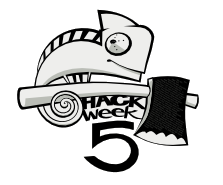This article of the German news magazine Der Spiegel made me aware of the Verein Computerspende Hamburg. A German verein is a non profit association, there are lots in Germany for sports, culture and these kind of stuff.
The Verein Computerspende Hamburg does something very useful: It takes used computer parts that other people do not longer need and refurbish them to working computers again. These computers are handed to people who happen to be in a difficult situation in life. They have to live from Hartz IV which is a kind German social security, following the unemployment benefit which ends after a short period. Hartz IV means very, very little money the people have to make their lives from, too little to buy a new computer.
On the other hand, an increasing amount of the job offerings are posted on the web, so people currently unemployed basically have to search the web, not speaking about preparing the resumes to apply for a job. So how would one do that without a computer?
Computing is not only hardware and well known operating systems and applications are far away from free, so it’s obvious that our great project is a perfect partner here: Not that we only offer a user friendly, easy to install, secure, feature rich and last but not least completely free Linux Distribution, we as a community are also able to help if problems come up, regardless if somebody has money or not and what kind of problem it might be. This is another very concrete example where free software and the FOSS communities help your neighbor, or you – as it is very easy to get into a difficult situation in life.
We sent 500 openSUSE 11.3 DVDs to Hamburg with our warm invitation and welcome to all new users to show up and join our community. So be aware of new kids on the block 🙂
And if you are in Hamburg or around and want to help, I am sure Verein Computerspende can make use of the help of more Geekos, such as installation, first hand user support and probably much more. And if you know of a similar interested initiative, let me know, I am sure I will find more DVDs 😉
 Beside many other amazing things which happened at the
Beside many other amazing things which happened at the 
 I am really looking forward to the next Hackweek that we have in Novell – it will be in the week from 7-11 of June 2010.
I am really looking forward to the next Hackweek that we have in Novell – it will be in the week from 7-11 of June 2010.